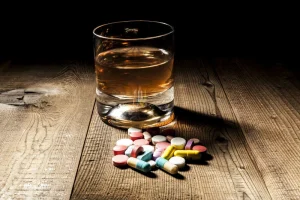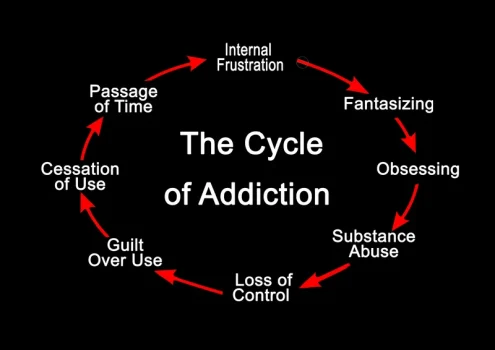
Whatever the reason, Sparkling Gold Vinada is the perfect non-alcoholic bottle of bubbly. This sparkling wine from La Mancha, Spain, is crisp and lightly acidic. It’s a well-balanced sparkling wine—ideal for sipping on summer afternoons or popping is wine addictive open on the weekends with a supper of lean fish. Note that though Sparkling Gold Vinada doesn’t contain alcohol, it does contain sulfites. It’s hard not to miss the biting burn of alcohol, but there is an ever-so-slightly dry finish.

Reasons to drink alcohol-free wine
For example, one of the oddest wine additives (in my naive opinion) is called isinglass, and it’s a form of collagen made from fish bladders. Stewart said isinglass has actually been an integral part of traditional French winemaking for centuries and isn’t necessarily something to be concerned about—unless you follow a vegan or vegetarian diet. American Addiction Centers can improve treatment outcomes for those in recovery for alcohol use disorder.

What is considered 1 drink?
Red wine, in limited amounts, has long been thought of as healthy for the heart. The alcohol and certain substances in red wine called antioxidants may help prevent coronary artery disease, the condition that leads to heart attacks. First and foremost, it is important to understand that addiction is a complex issue, and it affects individuals differently. Some people may be more prone to developing addictive behaviors, while others may have a higher tolerance for substances like alcohol. When it comes to wine, it is the alcohol content that is the primary concern in terms of addiction.
Questions About Treatment?
When consumed in moderation, wine may be beneficial to human health. Its antioxidant and anti-inflammatory properties may provide some measure of protection against cancer, https://ecosoberhouse.com/ osteoporosis, heart disease, and even support your long-term mental health and wellbeing. Five ounces should be a standard glass of wine according to health experts.
Short-Term Effects Of Wine Use
Let’s navigate through this important subject and gain a deeper understanding of the complexities surrounding wine addiction. One personal anecdote exemplifies the stress relieving and mental health benefits of wine. Sarah would unwind after work by enjoying a glass of her preferred red wine. Savoring wine helped her unwind and let go of the stress accumulated throughout the day. Sarah observed an improvement in her mood, feeling more content and at ease after indulging in a glass of wine. However, heavy drinking can have a negative impact on your mood and the function of your brain, heart, and other bodily systems.
- This is because the liver typically oxidizes alcohol through a series of steps to form water and carbon dioxide.
- Increased tolerance means that over time, you’ll need to increase your alcohol consumption to achieve the same pleasurable effect.
- If your family or friends have started commenting on your rush to the kitchen for a glass of wine after work, then listen to what they have to say.
- This is why a bottle of the same brand and varietal of natural wine can vary each time you drink it—an important thing to understand if you decide to dabble in the natural wine world.
- In many cultures, wine is considered a ceremonial drink, or a drink to be enjoyed and paired with cuisine.
Red wine and skin
The brain is highly vulnerable to the damaging effects of alcohol, which disrupts communication between brain cells. Excessive or chronic alcohol use can lead to a steady decline in cognitive function, causing memory problems, difficulty learning new information, mood changes, and behavior changes. The bottom line is that alcohol is potentially addictive, can cause intoxication, and contributes to health problems and preventable deaths.

What’s included
Different kinds of yeast greatly affect the flavor of the resulting wine. Some winemakers prefer ambient yeast that is present on their winery equipment while other winemakers create a custom cocktail of cultured yeasts. Don’t worry, wine additives are now more closely regulated and the national electronic archives maintains a list of chemicals that are legally allowed for use in wine. In 1985, German wine quality control scientists discovered the presence of a commercial solvent, diethylene glycol, in some of their low-end wines. Diethylene glycol is a sweet-tasting toxic chemical sometimes used in anti-freeze. After the scientists discovered the chemical, they soon realized that the German producers were illegally blending Austrian wines with theirs.
But there might be other reasons for the lower risk of heart disease in people who drink red wine in moderation. For instance, they might eat a healthier diet and be more active than those who don’t drink red wine. And they might have higher incomes and better access to health care as well. Drinking 1–2 glasses of red wine each day may lower the risk of heart disease and stroke. Drinking small amounts of red wine may reduce the risk of heart disease by helping to retain the “good” HDL cholesterol in the blood. Oxidative damage and the oxidation of the “bad” LDL cholesterol may also be reduced by up to 50% (19, 20, 21).
- In general, consuming a moderate amount of wine is safe for most people.
- Sarah observed an improvement in her mood, feeling more content and at ease after indulging in a glass of wine.
- It’s a well-balanced sparkling wine—ideal for sipping on summer afternoons or popping open on the weekends with a supper of lean fish.
- Though earlier treatment may help prevent the accumulation of many of the adverse consequences of compulsive drinking—it’s never too late to get help.
- “However, I do have a problem with herbicides and pesticides, like Roundup, found in some wines.”
Your alcohol consumption has increased.
If you are ready to discuss treatment, our admissions navigators are available 24/7 to speak with you today. Taking the first step toward recovery by seeking treatment is one of the best moves you can make for your overall health, well-being, and happiness. The more symptoms of AUD you have, the more serious the problem may be.14 Remember that no matter how severe the problem is, it’s never too late to get help and recover from alcoholism. Genetic, psychological, social and environmental factors can impact how drinking alcohol affects your body and behavior.
From your sleep to your skin, one health editor’s experiment helped them discover how a nightly glass of red can have major effects on your overall health. Addiction Resource does not offer medical diagnosis, treatment, or advice. Only trained and licensed medical professionals can provide such services. If you or anyone you know is undergoing a severe health crisis, call a doctor or 911 immediately. My respected colleague Rui Costa and I were sitting in the CorkScrew wine bar in Lisbon and discussing our research on altered states of consciousness. See my earlier Psychology Today blogs on altered states during sexual absorption, meditation, and psychedelics.
